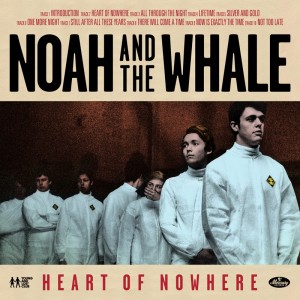Fade in. Exterior shot. Non-descript North American suburbs. A long street, lined with pristine houses and sedans, filled with people in suits and ties climbing into their cars and driving off for work. Straight cut to a train station. A bustling crowd wait impatiently as a train pulls into the platform. The doors open, and the crowd heaves aboard. Straight cut. City streets. A tide of people wash along the sidewalks, all overcoats and stern looks. Traffic lights flit from green to red. Roads fill with people. Traffic lights flit back. Roads fill with cars. Straight cut. Interior. Office building lobby. Suited business people march in from the bright outside. They queue as they shuffle through metal detectors, lift their arms as they are searched by bulky uniformed men. Suitcases are handed over, opened, searched, shut. Straight cut. A white middle-aged man sits at his desk. He wears a short-sleeved white shirt and plain blue necktie. His glasses are too big for his face, and three decades out of style. He is played, naturally, by Kevin Spacey.
And so opens Noah and the Whale’s fourth studio album. Not with a bang, but with the soundtrack of a future independent comedy about a middle-aged man slowly subverting the system the way only Kevin Spacey knows how. It’s an appealing opening, and one that captures instantly the record’s overall approach. We’ll call it ‘The Juno Approach’, after the 2007 film of the same name. It’s the sort of thing that happens when an inherently indie artist tries to create something that appeals to a much wider audience than they had ever previously considered.
Since their first album, the band’s fondness for excellent female vocalists has had occasional to outshine their own successes, and this continues on the album’s title track – Anna Calvi providing an inspired co-conspirator to Charlie Fink’s only slightly less distinctive vocals. If every song on the album was as irresistible as ‘Heart of Nowhere’ the rest of Britain’s music industry would be wise just to shut down until December or so.
So far the history of Noah and the Whale has been a varied one – their first album was awash with twee folk, their second a lyrical break-up album and their third a sincere FM-radio pop album. For the first time in their career their newest album feels like a natural successor to their last. We are treated to another round of big stadium-friendly songs that beg to be chanted both by festival goers and people who like to listen to Radio Two in the car. ‘All Through The Night’ is a particularly radio-friendly song that comes across as a curiously likeable early U2 song with hints of Tom Petty.
The Lisa of ‘L.I.F.E.G.O.E.S.O.N.’ makes another, altogether more nostalgic, appearance on ‘Still, After All These Years’ – an endearing song that isn’t so much ‘toe-tapping’ as it is ‘palm-gently-knee-patting’. It’s generously paired with ‘There Will Come A Time’, which lacks the sweetness but returns to the grand singalongs of the albums first four tracks. It’s perhaps a little lacking in depth, but still pulls the listener into an unwitting head nodding.
Heart of Nowhere‘s biggest weaknesses lie in Fink’s occasional preachiness. Further than the simle shallowness of ‘There Will Come A Time’, his lyrics can, at times, feel a little clichéd in the same sort of way an earnest fourteen year-old’s poetry might. Nowhere is this realised more than in the horribly mis-judged ‘Now Is Exactly The Time’. Fink sings a seemingly never-ending reel of these clichés. “And if you can/Try and get to know your parents well/Forgive them too/They are more like you than you can tell/When they give advice/Offer sympathy/They’re just showing you who they wanted to be.” It’s painful, and has been said hundreds of times before in so many more original ways.
Thank god, then, for ‘Not Too Late’, which closes the album the way only Springsteen knows how. A shuffling ode to hope, it shares a spirit with the final track off of every Bruce Springsteen album since 2002 (and there’s more of those than you might realise). ‘Not Too Late’ is the antithesis of ‘Now Is Exactly The Time’, in more than just the title. Sincere and intensely bittersweet, it feels like healing alcohol on the wound of the previous track.
When it comes down to it, both Juno and Noah and the Whale’s Heart of Nowhere share similar properties. Both the film and the album were born out of an independent world – first time screenwriters, early collaborations with Emmy the Great and Laura Marling, independent studios and independent labels. Ultimately though, both are much less subversive than similar efforts in the same genre, and both aim for a much wider audience than those similar efforts might ever hope to. They started off by independent means, but found distribution through major investors. They draw a lot of negativity from hipsters resenting the mass appeal and production gloss that is lacking in their own works. But they are ultimately very enjoyable works that, though far from flawless, will be worth returning to for years to come.
Words: Stephen Thomas

